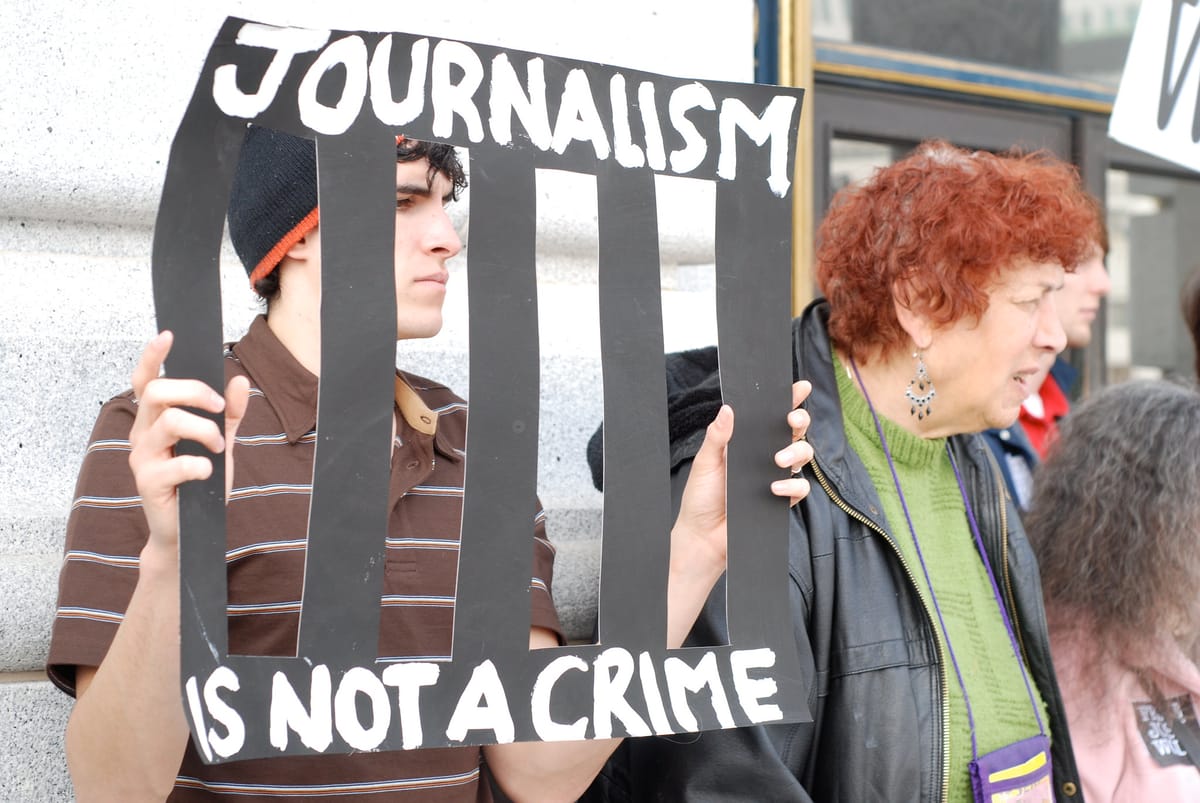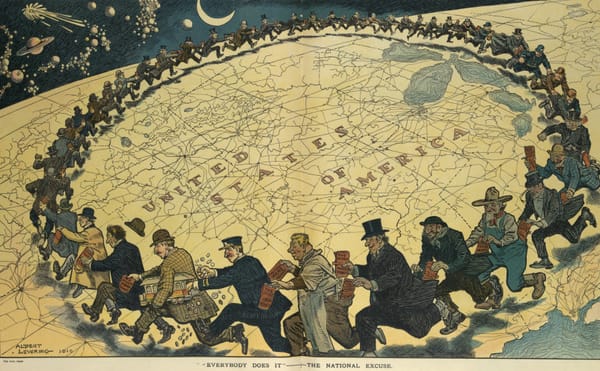Brains Poisoned by the "Twitter Files" Cannot Recognize the Genuine Speech Crisis in Front of Their Faces
Trump is consolidating control of online platforms and strong-arming news organizations.

In October of 2022, Elon Musk, the wealthiest man in the world, acquired Twitter for $44 billion. He quickly began sharing internal documents and screenshots of internal systems with a few outside figures in order to expose the apparently nefarious dealings of the previous Twitter regime (who Musk had just made a great deal richer). In particular, the relationship between Twitter and federal officials was broadcast widely, and to this day it is taken as unimpeachable fact in some circles that outright violations of the First Amendment were occurring. They were not, and it is not only liberals and opponents of Trump who think so. In Murthy v. Missouri, Barrett, Kavanaugh, and Roberts—two of whom were appointed by Trump himself—did not find sufficient evidence that even one platform was at substantial risk of restricting speech in response to at least one government official.
I think that The Bulwark is not off in its judgment that “It seems like an inappropriately close relationship between, on the one hand, government officials frustrated by the challenges of getting reliable information before the public during a global health crisis, and on the other hand, representatives of a tech company struggling to balance conflicting obligations to freedom and truth.” This is something worth scrutinizing “even if it didn’t cross constitutional lines,” or even statutory ones.
But people who have fixated on this relationship and on the “Twitter Files” more generally appear to have failed to notice some basic realities. First, like many things which occurred in 2020 that Democrats get blamed for, the incidents described in the “Twitter Files” occurred on Donald Trump’s watch, not Joe Biden’s. Much more critically, if you are worried about “an inappropriately close relationship” between the feds and Twitter, it is a bit odd that you’ve failed to notice that Twitter’s current owner is a member of the Trump administration. And not just any member—one whose lackeys are actively involved in seizing control of any levers of the federal government they can, flouting numerous laws, regulations, and judicial precedent in order to do so.
I suppose if the government is run by Twitter’s owner, it is rather unlikely to try to censor Twitter specifically. If that is the goal, well, mission accomplished. I do wonder if Twitter’s competitors, or more traditional media companies, feel as sanguine about having Elon Musk moving the levers of government. Mark Zuckerberg, founder, CEO, and largest shareholder of the most successful social media platforms in the world, clearly does not. Instead, he sought to protect his assets in advance, by appointing a Trump loyalist to his board and getting another’s approval for his plans to scrap DEI initiatives in the company, and by updating their moderation policy to be overtly friendly to conservative politics.
We have had more than a decade of anti-cancel culture commentary insisting that the most important thing is the character of the speech system—its empirical openness—rather than whether the government specifically is the one doing the censoring. So it is rather odd that the crowd at Bari Weiss’s Free Press seems rather muted on what is now unfolding. Indeed, if anything, they were excited by the lip service that Trump paid to their cause with his executive order “Restoring Freedom of Speech and Ending Federal Censorship.” They are happy to lap up the vague and symbolic gestures made in words rather than to oppose the specific and concrete actions and threats he has consistently made.
Because it is not just the integration of Twitter into his administration that is the issue. Zuckerberg’s submission to Trump, for example, likely has very little to do with Musk’s role in the administration, and more to do with Trump’s tendency to punish his enemies through any means he has available to him. Trump already sued Meta for banning him on their products previously, a lawsuit which they conspicuously settled after he had won the election. Litigation is a commonly deployed tool to suppress speech in this country, one very available to people like Trump and Musk who benefit from running up their opponents’ legal fees while having no trouble eating that cost themselves. In addition to the Meta lawsuit, Trump has sued CBS because he thought they made Kamala Harris look too good in a 60 Minutes interview, and he’s sued the Des Moines Register for running a poll whose results suggested he would lose Iowa.
As the Meta example indicates, such litigation is bad enough for speech on its own, but it is far worse when the plaintiff is the president of the United States. There is an implicit threat that the powers of the presidency will be used against you if you fail to settle on terms favorable to the president, and of course the rather more explicit threat that you will be punished one way or another if you displease him again. In the case of CBS, for example, Trump has also floated the idea of revoking their broadcast license simply because he didn’t like that his electoral opponent looked good in one interview segment. These threats are already beginning to become reality; the FCC for example opened an investigation into a local radio station over its reporting on ICE.
But I can understand how these “Twitter Files”-heads feel. After all, some low-level feds suggested that Twitter remove some conspiracy posts during a global public health emergency. Compared to that rampant tyranny, a sitting president openly threatening his critics is hardly worth tweeting about.
Featured image is Journalism is not a crime, by Steve Rhodes




